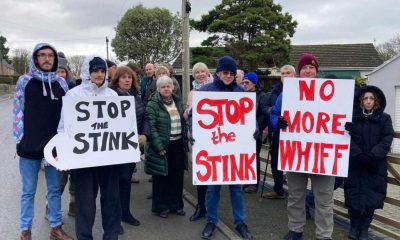Farming
Animal health and welfare workshops help family farm shape future business
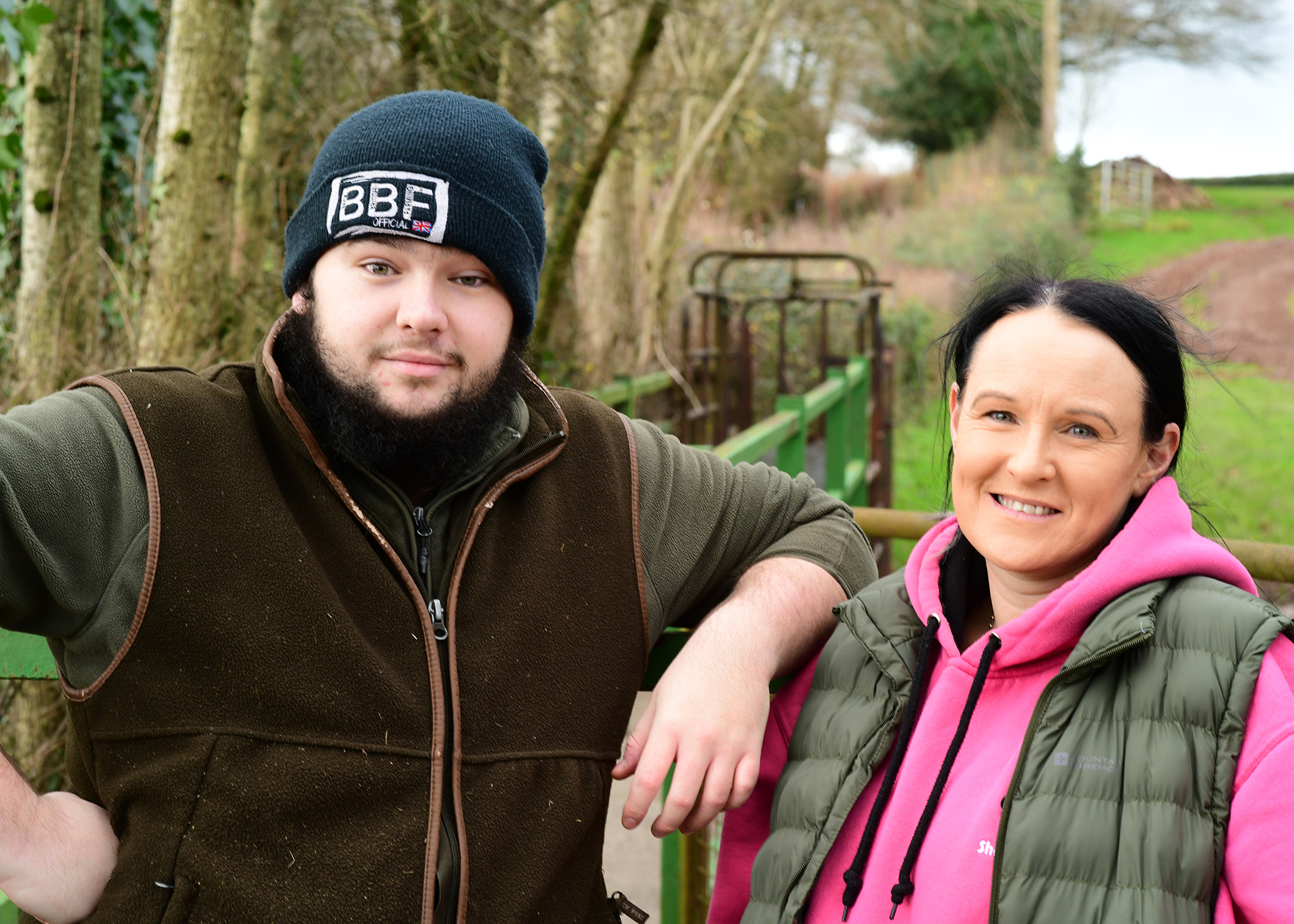
AN eagerness to learn new skills and knowledge is helping mother and son Dianna and Iestyn Spary to continually improve their livestock farming enterprise and build a financially sustainable business fit for the future.
Technical expertise and good business sense are not qualities the Sparys lack since embarking on an impressive number of Farming Connect workshops, covering a range of animal health and welfare topics.
“It’s been an amazing opportunity, we have learned so much that we can apply within the day to day running of our farm and herd, and we can draw on that knowledge as we look at developing new enterprises and diversifications,’’ says Dianna.
She is the fifth generation of her family to farm at Goytre Farm at New Church West, Chepstow, Iestyn the sixth.
Together they farm 110 hectares, running a Hereford-cross beef suckler herd and also rearing beef cattle purchased as baby calves, including more recently British Blues, taking these through to slaughter.
Although they have been immersed in agriculture all their lives, they recognise that it is an industry that is constantly changing as new research and ideas are rolled out and applied.
This is where the Farming Connect workshops have been so incredibly valuable, says Dianna.
“You are never too old to learn, things are changing all the time. If we hadn’t got involved in attending the workshops, we would never have known about some of those new ways of doing things.’’
From learning how to maximise suckler cow productivity and protecting youngstock health to understanding diseases such as Johne’s and bovine TB, the animal health and welfare training workshops have been “enormously valuable’’, she adds.
The pair have tapped into Farming Connect accredited training courses covering areas such as calf management, health and housing, body condition scoring and safe use of veterinary medicines.
“You name it we have done it,’’ says Dianna.
They were announced the winners of the 2023 Farming Connect Animal Health and Welfare Award at the Lantra Cymru Awards in January.
The knowledge gained through Farming Connect workshops and training has helped inform changes in the business.
“We now monitor cattle weights more closely and have introduced different ways of feeding,’’ Dianna explains.
“We have also been revamping all the cattle sheds and have a couple of new ones that will be going up.
“We’ve also invested in calf jackets and if there are any drops in weights, we are more responsive with feed intakes, little things like that.’’
Iestyn has also benefited from a number of sheep-related topics offered through the animal health workshops.
Through the Farming Connect Advisory Service, they have received specialist veterinary advice on their Herd Health Plan with a focus on incoming stock and biosecurity. They have also had guidance on soil health through the soil clinic.
The Sparys largely use traditional farming methods at Goytre Farm where they have several hay meadows.
All feed is produced on-farm. “By doing everything in-house we know exactly what we are feeding and that’s important to us,’’ says Dianna.
That distinctiveness, which sets them apart from some of the more mainstream farming systems, has given them the confidence to consider establishing a diversification into meat box sales, what Dianna describes as a ‘farm to fork’ approach.
Working with a local butcher who has an abattoir licence, they hope to do everything on-site, from slaughter through to hanging the carcass for 28 days, and then selling cuts direct to the consumer.
“We have also spoken to a chef who is going to produce some recipe cards for us to include in the boxes along with a bit of history of where the meat has come from,’’ says Dianna.
Another future project could be converting stone barns in the farmyard to holiday accommodation.
To help focus their minds on their plans, the Sparys will get guidance at a Farming Connect diversification surgery; they have also signed up for a ‘planning a diversification’ training course and will attend a ‘Dos and Don’ts of Diversification’ event in the coming weeks.
For Iestyn, another form of diversification, into agricultural contracting, has provided a secondary income stream.
His customer base is largely farms with smaller acreages with crops that require harvesting or spraying.
Farming Connect has helped with this process too as Iestyn has gained his Level 2 Award in the Safe Use of Pesticides (PA1) and Safe Application of Pesticides Using Vehicle mounted Boom Sprayer Equipment (PA2).
He also offers field maintenance and fencing and works on a neighbouring farm during the lambing season.
This is where Farming Connect has again helped; through the animal health workshops, he has covered modules advising on the prevention of lambing losses and lameness, improving lamb performance post-weaning and parasite controls.
Dianna says the opportunities available through Farming Connect have really helped to drive the family farming business forward.
“We have a good relationship with our local Farming Connect development officer Lisa Powell, she has been brilliant in giving us advice on which courses and workshops are right for us and signing us up for those,’’ she says.
All your achievements, training and knowledge transfer activities are saved within your personal, online Storfa Sgiliau account, the unique, online professional development tool, available for you to view and download at any time from your BOSS (Business Online Support Service) account.
Farming
Rural expert urges communities to help bolster farmers’ mental wellbeing
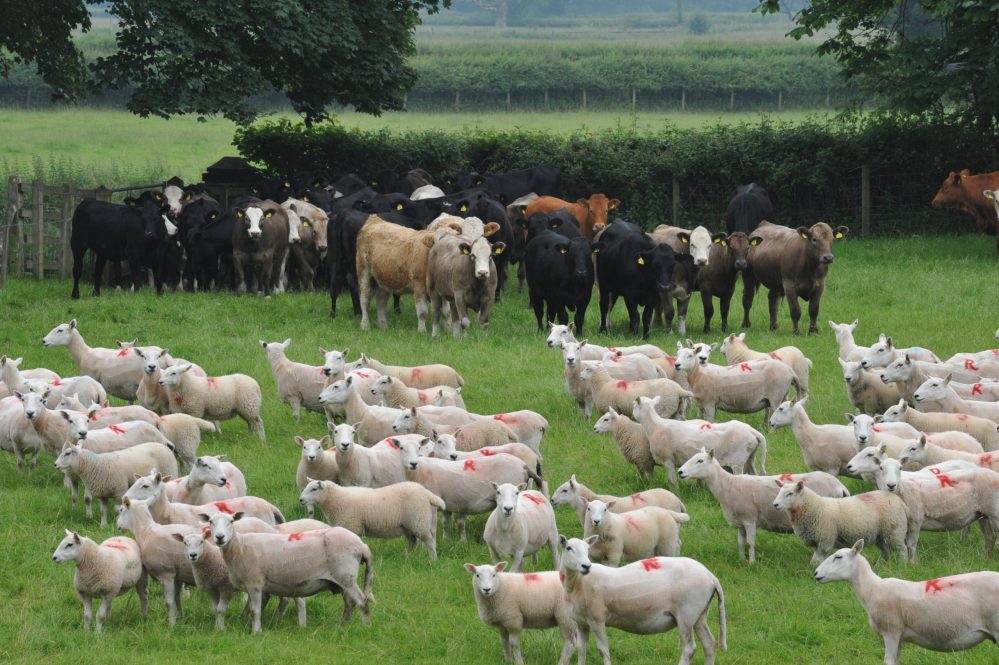
A RURAL insurance expert is calling on Welsh residents to step up their support for local farmers, amid growing concerns over their mental health.
Freddie Hamilton-Russell of rural insurance broker Lycetts has issued his appeal during Mental Health Awareness Week, when the spotlight turns to the pressures faced by different sectors of the community.
For farmers, the combination of economic instability, market volatility, red tape, a changing subsidy regime and climate change not only threatens their livelihoods but also risks impacting their mental wellbeing.
“Farming is not just a business, it’s a way of life that demands resilience in the face of the myriad of evolving challenges,” said Hamilton-Russell.

“But even the most mentally resilient can struggle under the weight of financial and economic uncertainty. It’s important that residents support the local agricultural sector to help keep their rural communities alive.”
Hamilton-Russell highlighted several ways in which people can make a difference.
“Minor changes in shopping habits can make a big difference,” he said. “From buying local farm produce to help ensure farmers have a steady income to patronising local restaurants that champion local fare.”
In recent years, many farmers have been thrust into diversified enterprises in a bid to survive – from farm shops, cafes and glamping sites to B&Bs, wedding venues and petting farms.
“Residents can help support these new ventures, not only by visiting them, but also by promoting them to friends, family, colleagues and on their social media channels,” Hamilton-Russell added.
“In addition, our Welsh farmers also need access to mental health resources that address the unique pressures of the farming sector and wider agricultural communities.
“Organisations such as RABI (The Royal Agricultural Benevolent Institution) provide an invaluable service to UK farmers, helping them become more resilient and better able to cope with future challenges.
“By fostering awareness and advocating for such dedicated services, we can help safeguard the mental health of our farming community.
“Every individual can contribute to this cause. Whether it’s choosing to buy local, spreading the word about rural enterprises or supporting mental health initiatives, your actions can make a profound difference.”
Farming
Delay to Sustainable Farm Scheme ‘is bad news for farmers’ says Trust
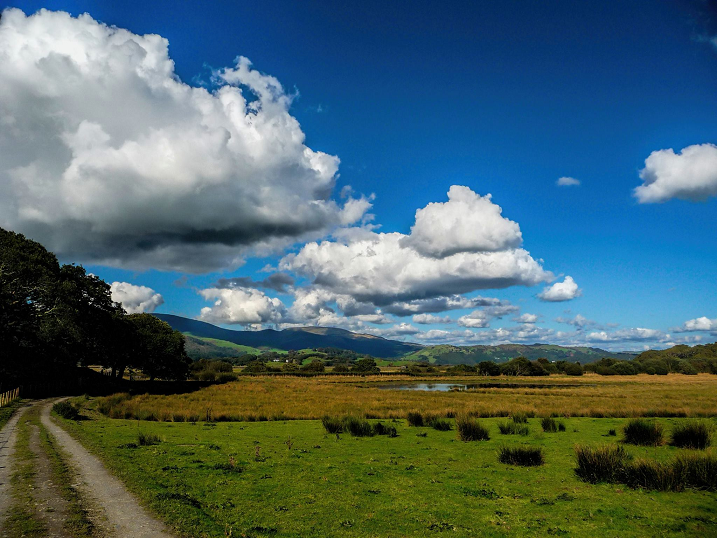
THIS week the Welsh Government announced that Sustainable Farming Scheme has been delayed by a year. Wildlife Trusts Wales believe this is bad news for farmers, nature and climate. The post-Brexit farm payment scheme offers a once-in-a-lifetime opportunity to put farming in Wales on a sound sustainable footing to address the interlinked climate and nature crises and ensure a viable future for Welsh farming.
The decision to delay the scheme comes at a time when Welsh farmers are suffering from the effects of months of heavy rain. This is placing farm businesses under increasing strain, which will only get worse as our climate changes. The UK Government’s 2021 Food Security Report found that, “The biggest medium to long term risk to the UK’s domestic production comes from climate change and other environmental pressures like soil degradation, water quality and biodiversity.”
Rachel Sharp, Director of Wildlife Trusts Wales says: “The decision to delay the scheme simply prolongs the uncertainty at a time when farmers need to be rewarded for switching to sustainable farming methods which will benefit their businesses in the future. Delaying measures to help farms adapt to our changing climate now only increases costs tomorrow and so is bad news for farm incomes. The scheme offers a great opportunity for farmers to be on the front foot to address the changing weather – to plant trees for shelter for livestock, to switch to herb-rich grasses which are less prone to drought, and to store water in ponds on farms.
“It’s clear that the current food system isn’t working for farmers, nature, climate and even consumers. We see nature in rapid decline on some farmland, rivers polluted from agricultural run-off and many farmers struggling to make their businesses viable. Although the extra year will give further time for farmers’ concerns to be heard, it is vital to be lead by science.”
Most Welsh farms already have 6% tree cover and so do not have far to go to meet the proposals to reach 10% under the new scheme – trees benefit the farm through providing shelter for livestock, protect soil and to soak up flood waters. These areas do not have to come out of production because grazing beneath the trees is allowed.
Rachel Sharp continues: “It is a critical time for farming in Wales and it’s important that the new scheme is adequately funded. We need to see the whole scheme rolled out in 2026 as farmers need clarity on all tiers of the scheme including the ‘Options’ and ‘Collaborative’ tiers. Farmers need to know what payment rates will be available to plan for their business. This year will be critical and piloting new approaches is needed so that farmers can see what the new scheme looks and feels like. As 90% of Wales is farmland there is huge potential to harness nature to help store carbon and to hold back flood waters in revitalised natural habitats and to mitigate the impacts of climate change for the people of Wales. This would then demonstrate the value of giving taxpayers’ money to farmers for public benefits that, in turn, support rural communities.”
Nature is continuing to decline at an alarming rate across Wales, which is already one of the most nature-depleted countries in the world. 18% (one in six) of species are at risk of extinction from Wales. The abundance of land and freshwater species has on average fallen by 20% across Wales since 1994.
Farming
King Charles III is new Royal Welsh Agricultural Society patron

KING CHARLES III has continued a royal tradition by agreeing to become the new patron of the Royal Welsh Agricultural Society (RWAS).
As Prince of Wales, he consistently supported the RWAS, having visited the Royal Welsh Show seven times from 1969 to 2019 and he opened the Royal Welsh Winter Fair in 2001.
“To have the monarch as our patron is very special,” said Aled Rhys Jones, RWAS chief executive. “We are immensely grateful to His Majesty for continuing his support to the society.
“He is a true champion of rural matters and has a deep affection for Wales. His support as patron will be a great endorsement to the work we do in promoting Welsh agriculture.”
The decision follows a review of the patronages of the late Queen, the former Prince of Wales and the former Duchess of Cornwall. The letter from Buckingham Palace to the RWAS read: ‘His Majesty would be delighted to accept’.
The Queen was patron of the RWAS for 70 years and showed great support. Her support reflected her long-lasting interest in Welsh agriculture, horticulture and rural affairs.
The Queen’s first official role with the RWAS was as Princess Elizabeth in 1947, when she was honorary president. She undertook a triumphant tour of the showground during a visit to the Royal Welsh Show, held in Carmarthen.
The late Queen had followed her late father, George VI, and her grandfather, George V in accepting the patronage.
King George V first became patron as Prince of Wales in 1907 and formally as King in 1911. His Silver Challenge Cup for the best Welsh Cob then became known as the George Prince of Wales Challenge Cup, one of the most famous cups presented at the Royal Welsh Show annually.
-

 Entertainment2 days ago
Entertainment2 days agoDolly Parton to explore Welsh roots near Tenby in upcoming TV special
-

 News4 days ago
News4 days agoCyclist dies during annual charity ride to Tenby
-

 News5 days ago
News5 days agoRenewed social media appeal over Sian Batchelor’s death
-

 News5 days ago
News5 days agoAurora Alert: Another chance to see the Northern Lights tonight
-

 Crime2 days ago
Crime2 days agoMilford woman ’caused significant life-changing injuries to motorcyclist’
-
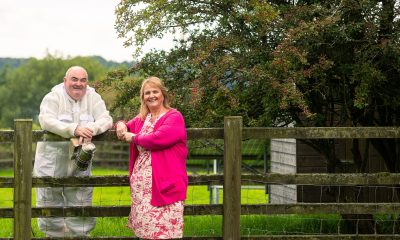
 News11 hours ago
News11 hours agoLife literally ‘buzzing’ for west Wales EuroMillion winners
-

 Crime6 days ago
Crime6 days agoFormer Pembroke Dock mayor admits child abuse image charges
-

 News2 days ago
News2 days agoSian Batchelor: Police issue new appeal for information









